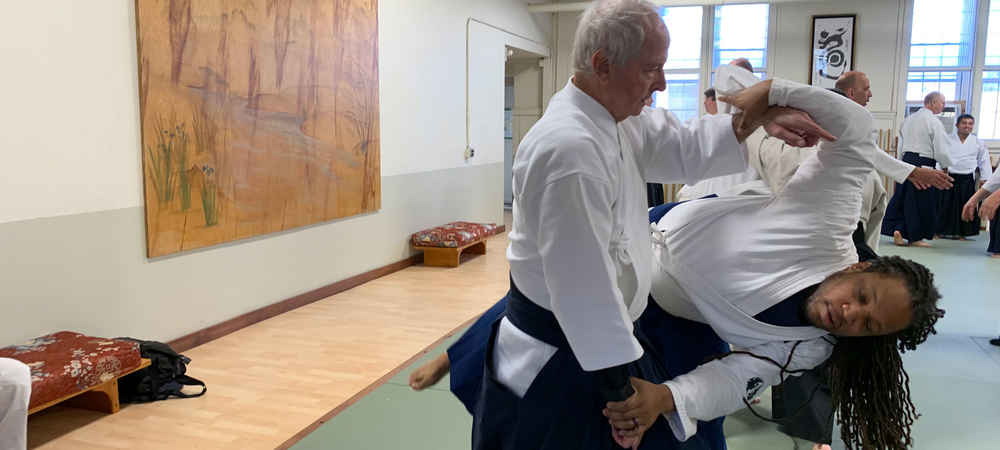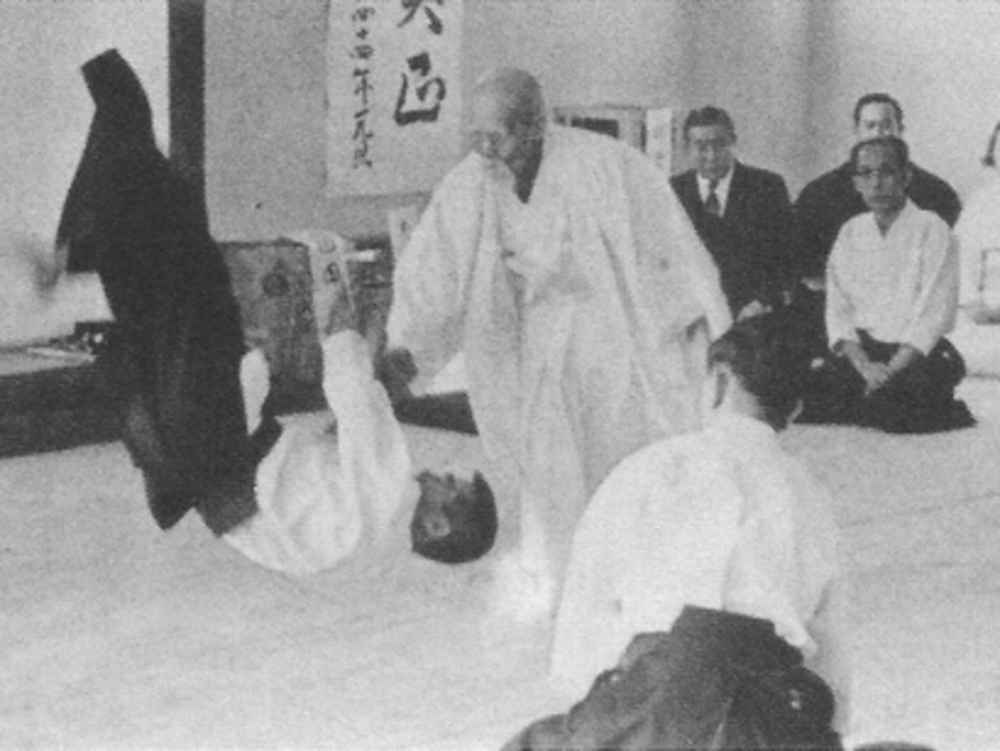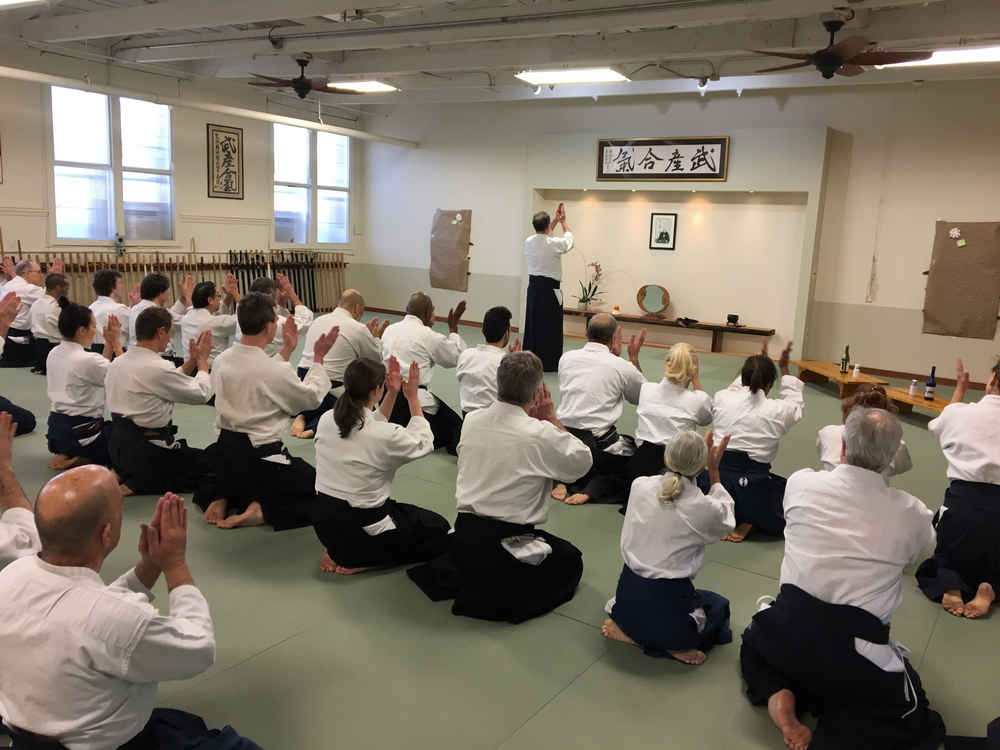Aikido shows how to deal with violence without escalating into greater violence.
O-Sensei developed aikido with an explicitly philosophical intent. That does not mean, however, that aikidoka are required to accept or agree with his philosophy. In fact, as a group, aikidoka are probably as varied in philosophy, background, goals, and aspirations as any other group of people. Nevertheless, O-Sensei’s philosophy affected the decisions he made in developing the art. He was interested in developing an art that would bring people into greater harmony with themselves and their world. As such, he wanted to develop an art that would be an art of peace (aiki-do) rather than an art of war (aiki-budo). Aikido opens us up to the alternatives to conflict.
Fundamental to the philosophy of aikido is a sense of the deep connection among all living things. This connection means that it is a mistake to view another as an “enemy” or to strive to defeat or conquer another human being. Thus, aikido techniques are designed to achieve control of a violent situation without harming or killing anyone. Ironically, many people find that this change in attitude makes them more effective, rather than limiting them, and many police around the world use training based in aikido in their efforts to simultaneously apprehend and protect suspects.
While effectiveness in a fight is an important goal for some, others are not motivated by this. Many people who practice aikido find that learning how to bring gentleness and flow into a physical conflict also changes their attitudes in day-to-day struggles. That is, we learn to notice how we get in our own way by trying to impose a technique on our partner with force and strength. This can help us notice how we might similarly be tripping ourselves up by creating unnecessary struggles of will with the people in our lives. Of course, most of us struggle most with our loved ones and with ourselves. Indeed, a fundamental principle of aikido is masakatsu agatsu, which means “true victory is victory over oneself.” More often than not our struggles and conflicts in the world are a reflection of struggles and conflicts we have with ourselves. As we learn how to de-escalate these internal conflicts, the external ones tend to melt away.






